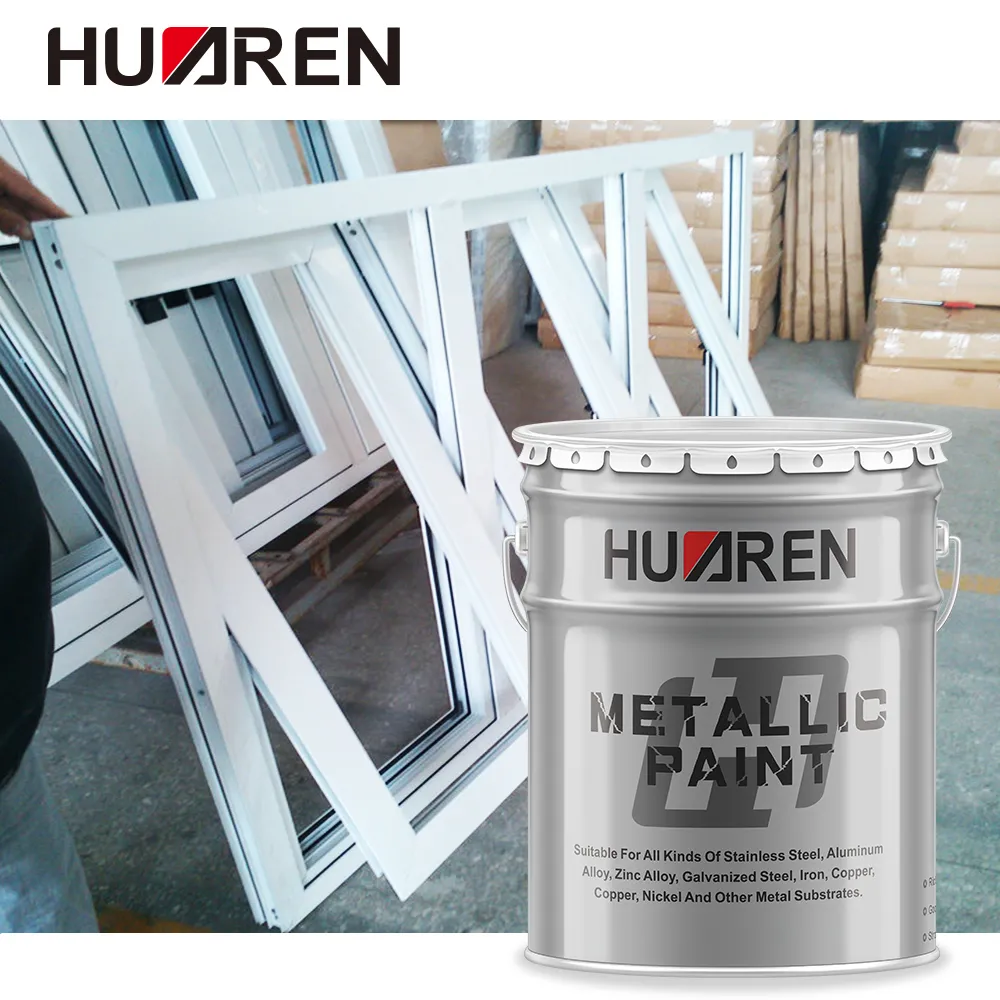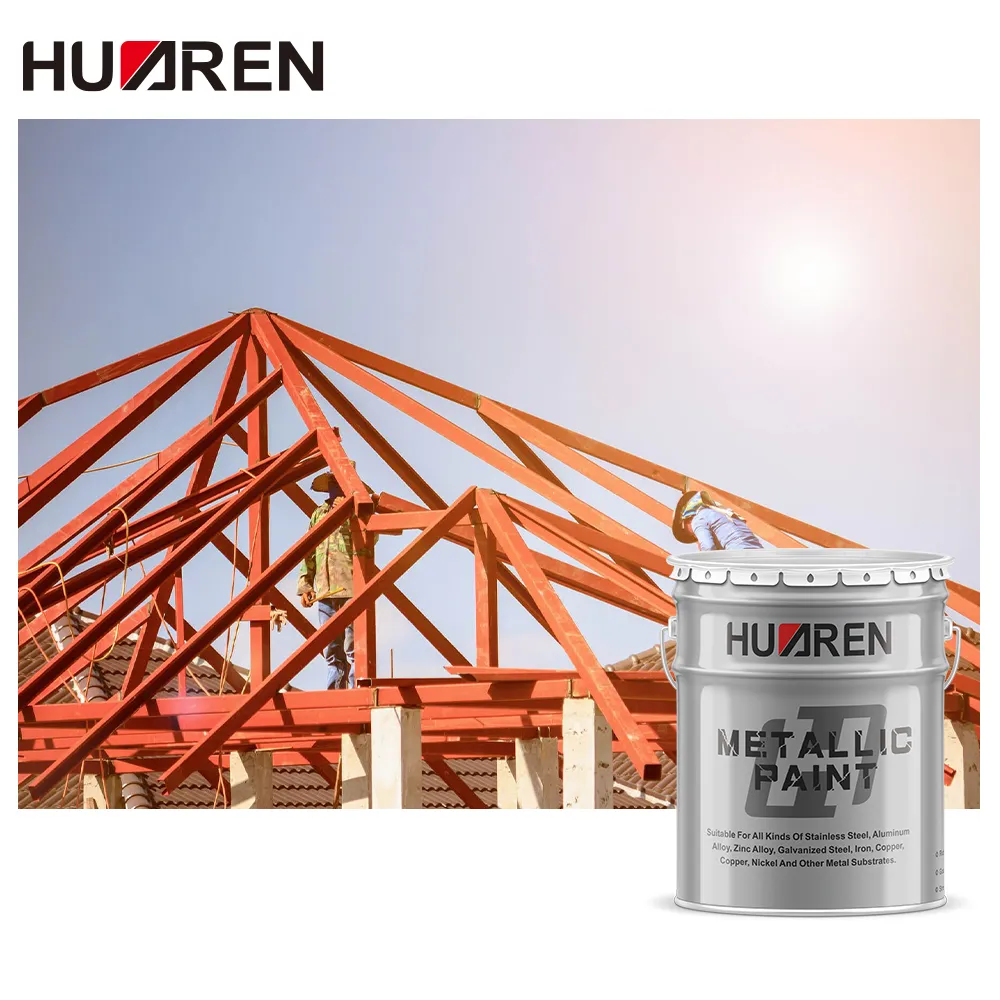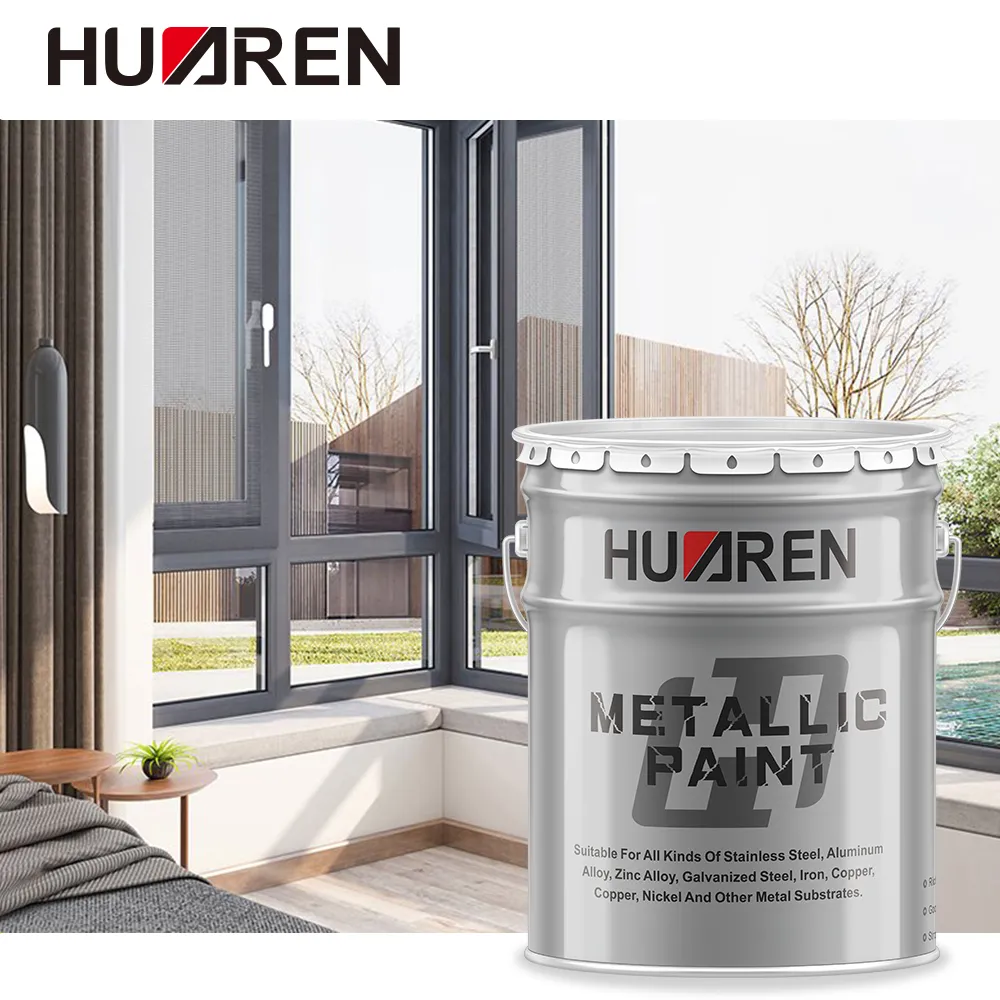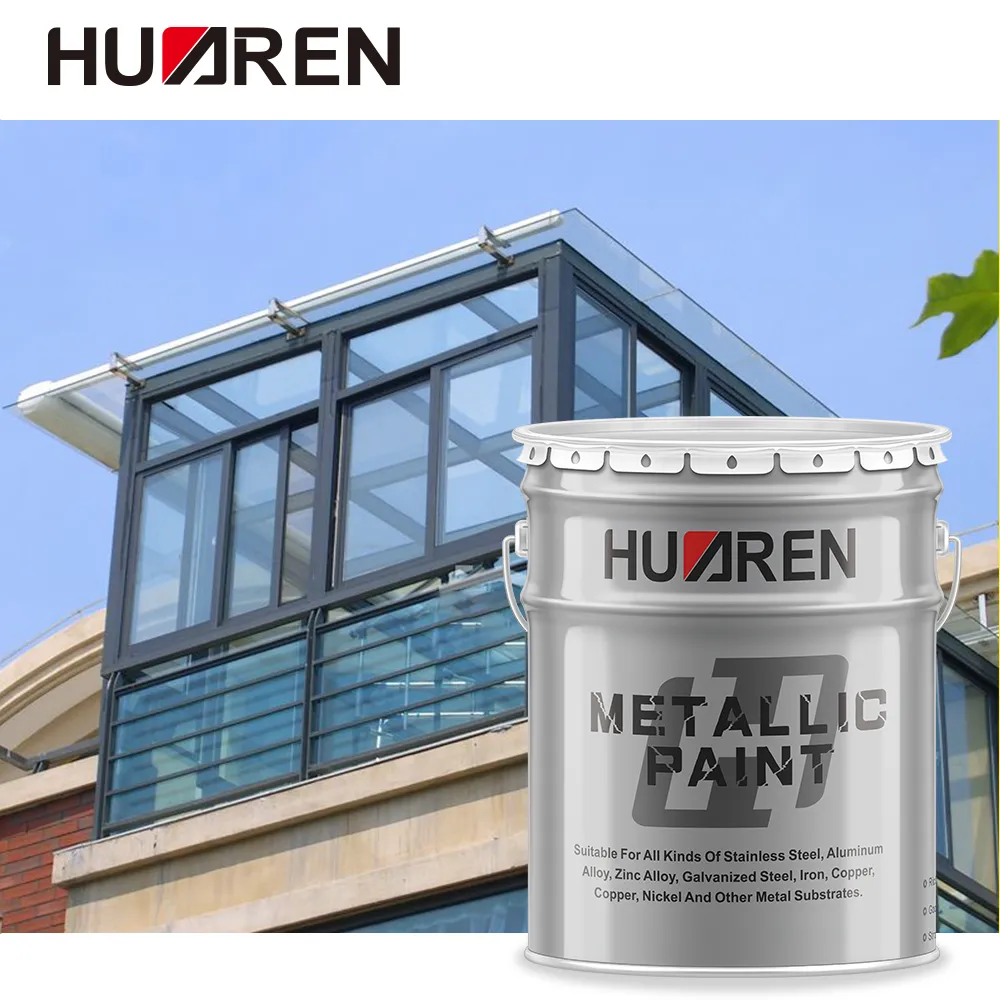Zinc metal is widely used in various industrial and construction fields due to its excellent anti-corrosion properties. However, even though zinc itself has a certain corrosion resistance, additional protective measures are still needed in some extreme environments to extend its service life. Primer, as an important component of the protective coating system, is crucial to the protection and coating effect of the zinc metal surface.
So, what is the best primer for zinc metal? This article will explore this issue in detail and provide relevant suggestions and analysis.

What are the anti-corrosion properties of zinc metal?
Before discussing the primer suitable for zinc metal, we need to understand the anti-corrosion properties of zinc metal. Zinc metal forms a dense basic zinc carbonate film in a humid environment, which can prevent corrosive substances from further eroding the zinc metal body, thereby delaying the corrosion process. However, in some harsh environments, such as oceans, industrial areas, or areas with frequent acid rain, this protective layer may be destroyed, resulting in accelerated corrosion of zinc metal. Therefore, in order to enhance the durability of zinc metal in these environments, the application of primer becomes a necessary step.
What are the selection criteria for primers on zinc metal surfaces?
When choosing a primer for zinc metal, there are several key factors to consider:
1. Adhesion: The primer must be able to adhere firmly to the zinc metal surface to ensure the stability and durability of the coating.
2. Corrosion resistance: The primer should have good corrosion resistance and be able to resist the erosion of corrosive media such as moisture, salt spray, chemicals, etc.
3. Compatibility: The primer needs to have good compatibility with subsequent topcoats and other coatings to ensure the overall performance of the coating system.
4. Ease of application: The primer should be easy to apply and able to be applied under different environmental conditions.

What is the best primer for zinc metal?
The best primers for zinc metal are:
1. Epoxy zinc-rich primer
2. Polyurethane primer
3. Alkyd primer
4. Inorganic zinc-rich primer
Based on the above selection criteria, these primers are considered to be the most suitable for zinc metal. The specific introduction is as follows:
Epoxy zinc-rich primer
Epoxy zinc-rich primer is an epoxy resin primer containing a high proportion of zinc powder. Its main feature is to provide excellent anti-corrosion performance through the cathodic protection of zinc powder. Epoxy zinc-rich primer can form a dense protective layer on the surface of zinc metal, which can not only prevent the penetration of corrosive media, but also provide active protection when the coating is damaged.
Advantages of epoxy zinc-rich primer:
● Epoxy zinc-rich primer has extremely high anti-corrosion performance, especially suitable for marine environment or industrial atmosphere environment.
● Epoxy zinc-rich primer has excellent adhesion and can firmly adhere to the surface of zinc metal.
● Epoxy zinc-rich primer is compatible with most topcoats and is suitable for a variety of coating systems.
Disadvantages of epoxy zinc-rich primer:
● Epoxy zinc-rich primer has high construction requirements, requiring good surface treatment and control of the coating environment.
● Epoxy zinc-rich primer has a long drying time, which may affect the construction progress.
Polyurethane primer
Polyurethane primer is a primer with good weather resistance and mechanical properties. It can form a flexible and dense coating on the surface of zinc metal, which can prevent physical wear and tear, and resist the influence of ultraviolet rays and chemical corrosion.
Advantages of polyurethane primer:
● Polyurethane primer has excellent weather resistance and durability, and is suitable for zinc metal structures exposed outdoors.
● Good adhesion and flexibility, adapting to small-scale deformation of zinc metal surfaces.
● Polyurethane primer dries quickly and can improve construction efficiency.
Disadvantages of polyurethane primer:
● Polyurethane primer may have poor compatibility with certain high-solid content topcoats and needs to be tested before construction.
● The cost of polyurethane primer is relatively high and is not suitable for large-scale use.
Alkyd primer
Alkyd primer is a cost-effective general-purpose primer that is often used for basic protection of zinc metal surfaces. Its coating film has good adhesion and toughness and can provide a certain degree of corrosion protection.
Advantages of alkyd primer:
● Alkyd primer is easy to apply and is suitable for large-area coating and zinc metal protection in general environments.
● Alkyd primer has a low cost and is suitable for projects with limited budgets.
● Alkyd primer has a moderate drying time and does not affect subsequent construction.
Disadvantages of alkyd primer:
● The anti-corrosion performance of alkyd primer is not as good as that of epoxy zinc-rich primer or polyurethane primer, and its applicable environment is limited.
● Alkyd primer has poor chemical resistance and weather resistance and is not suitable for extreme environments.
Inorganic zinc-rich primer
Inorganic zinc-rich primer is similar to epoxy zinc-rich primer and also contains a high proportion of zinc powder, but its film-forming substance is inorganic silicate. Inorganic zinc-rich primer can form an extremely hard coating on the surface of zinc metal, providing excellent heat resistance and chemical resistance.
Advantages of inorganic zinc-rich primer:
● Inorganic zinc-rich primer has excellent high temperature resistance and is suitable for zinc metal protection in high temperature working environment.
● Extremely high chemical resistance, suitable for environments exposed to corrosive chemicals.
● The coating formed by inorganic zinc-rich primer after drying has high hardness and excellent wear resistance.
Disadvantages of inorganic zinc-rich primer:
● The construction requirements of inorganic zinc-rich primer are demanding and need to be painted under strictly controlled conditions.
● Inorganic zinc-rich primers have extremely high requirements for surface treatment and require thorough sandblasting or other roughening treatment.
● Inorganic zinc-rich primers are expensive and are not suitable for large-scale use.

What are the precautions for the construction of zinc metal primers?
It is important to choose a primer suitable for zinc metal, but the construction process also plays a key role in the protective effect. Here are some precautions during construction:
Surface treatment
No matter what primer is selected, surface treatment is the basis for ensuring coating adhesion and protective effect. Before applying the primer, ensure that the zinc metal surface is clean, dry, free of oil and other contaminants. If there is zinc oxide or corrosion products on the surface, it is recommended to perform sandblasting or pickling to improve the adhesion of the primer.
Primer mixing and preparation
Epoxy zinc-rich primers and inorganic zinc-rich primers usually need to be mixed and prepared before construction to ensure that the zinc powder is evenly distributed in the coating. When mixing, strictly follow the manufacturer's instructions to ensure that the ratio of zinc powder to base material is correct, and avoid long-term static precipitation of zinc powder.
Coating environment control
The temperature, humidity and other factors of the construction environment will directly affect the film quality and drying speed of the primer. When applying the primer, it should be avoided in a high humidity or low temperature environment to avoid affecting the adhesion and anti-corrosion performance of the coating. At the same time, the construction site should avoid dust, impurities and other pollution of the coating surface.
Coating thickness
The coating thickness of the primer is directly related to the protective effect. It is usually necessary to determine the appropriate coating thickness according to the specific primer type and environmental requirements. For epoxy zinc-rich primer and inorganic zinc-rich primer, the coating thickness is usually recommended to be between 50-75 microns to ensure sufficient zinc powder content and protective effect.
Topcoat coating
The topcoat should be applied in time after the primer is dry to avoid the primer being exposed to the environment for too long and causing failure. Different types of primers have different compatibility with topcoats, so the characteristics of the primer should be fully considered when selecting the topcoat, and a small-scale test should be conducted before construction.

Huaren Chemical Industry Co., Ltd. has been at the forefront of the chemical products industry for over 30 years, specializing in the production of high-quality industrial coatings, resins, and paints. With an annual output of more than 20,000 tons, Huaren’s production capabilities are designed to meet the demands of industries ranging from petrochemicals to construction. We offer a wide variety of paints, including epoxy, acrylic, phenolic, and heavy-duty anti-corrosion coatings. Huaren’s paints are trusted by clients in Africa, Southeast Asia, and Europe, and we are recognized as a leading manufacturer in China. Whether you are looking to buy wholesale, purchasing cheap paints, or need customized products for your project, Huaren is the supplier you can rely on for affordable, high-quality solutions. Take advantage of our discounts and promotions by requesting a quote today.

